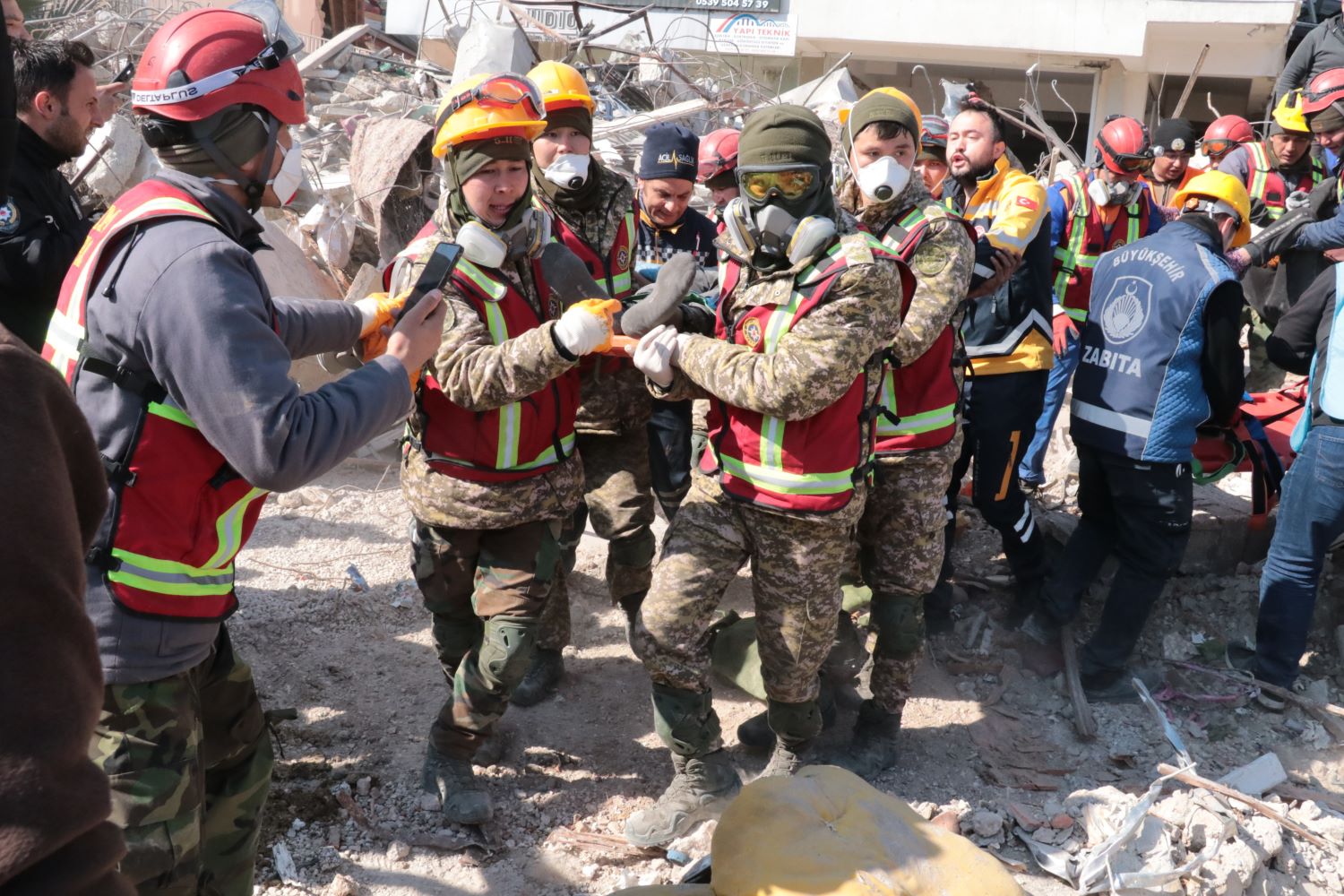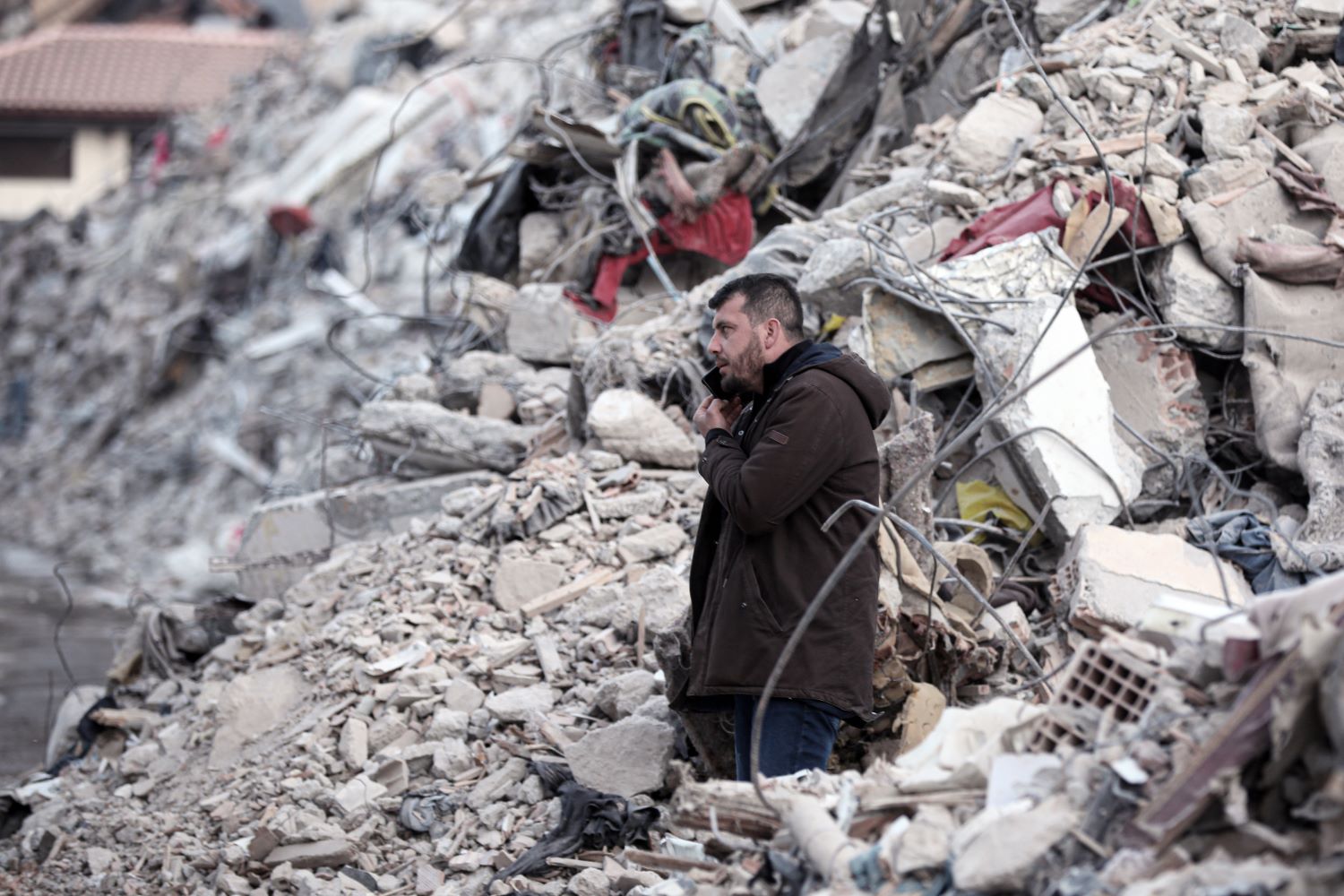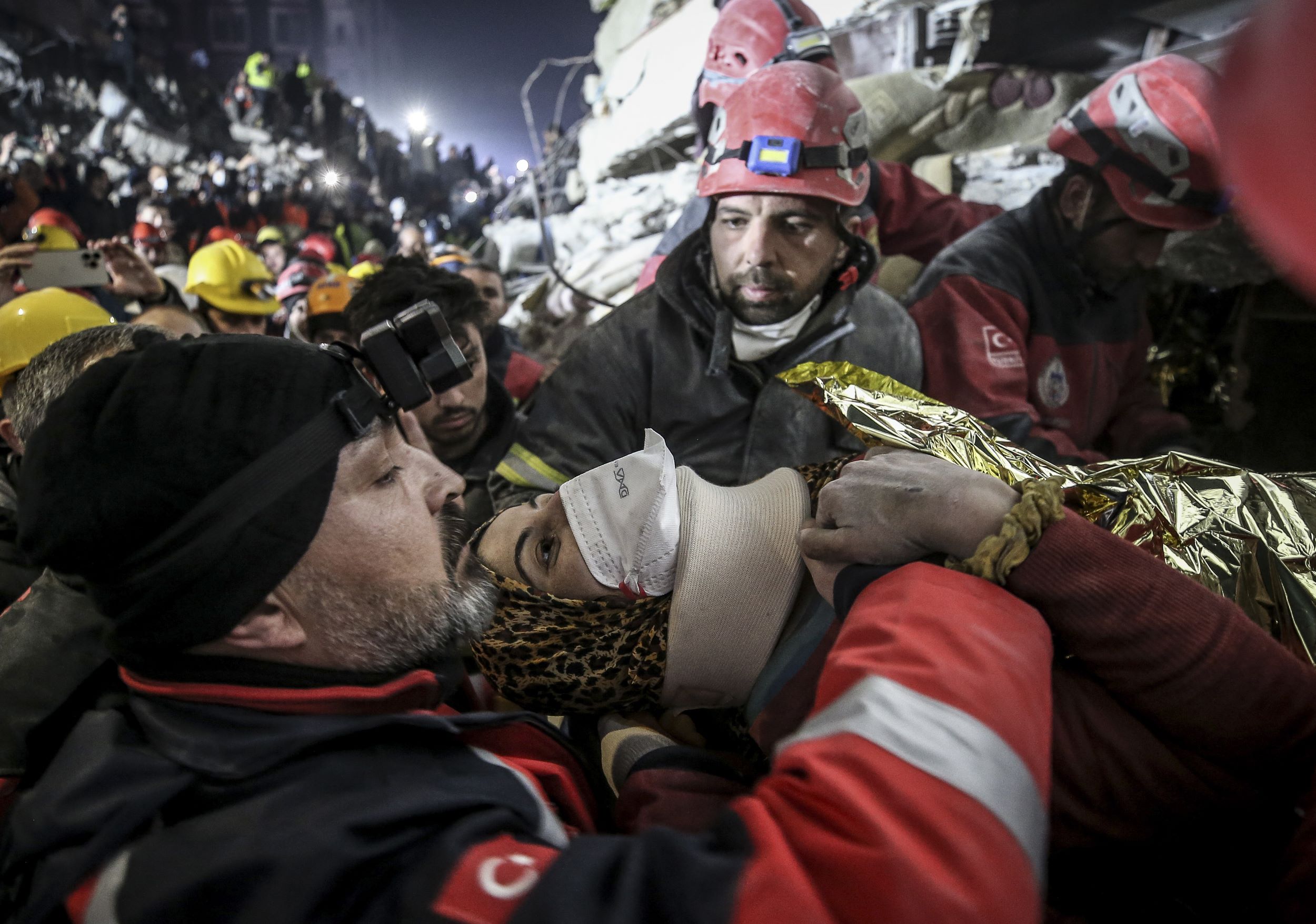Where do you draw the line when covering human suffering? When does reporting on a devastating earthquake cross over from objective journalism to tasteless voyeurism?
When my phone rang on a Monday at 5 o'clock in the morning in Istanbul and I saw my colleague's number flash up, I knew that something was happening.
"An earthquake in the southeast," he told me. It was of a magnitude of around 7.7, he added, which meant, as I knew immediately, hundreds of victims.
More than 600 people had died in the Van earthquake in 2011, which was recorded at 7.4, while 117 perished in the Izmir quake in 2020, with a 7.1 force. I had covered both from Istanbul, as my news agency had sent other people to the field, but I was familiar with the images on TV.
At noon it became clear that I had to go.
I grabbed a few sweaters and the video camera and hopped on a plane that arrived at night in Adana, the only major city in the region where life was still normal - only a few buildings had fallen down on the outskirts of the city.
I rented the last available car at the airport and started driving to the more badly hit cities. First to Osmaniye, not too far away, which allowed me a gradual approach to the magnitude of the disaster.
Osmaniye seemed somewhat normal at first sight, although abandoned: life had stopped here and all the buildings were empty - most of them damaged, but still standing. I had to search around a little in order to find a collapsed building where rescue work was in process, but there I recorded the typical earthquake scenery, good for video shooting and good for getting quotes from people watching the rescue teams on top of the rubble and the bulldozer at the edge.
You need people who are first-hand witnesses to tell you some stuff, so you can write a lively story from the field. But it is difficult to come up with a question when you already know the answers.
It would be silly to ask: "What has happened here?" And when you finally draw up some comment like: "Do you think there is still hope for survivors?" in order to start a conversation with an elderly man, and he answers: "It's not easy but we cannot lose hope. My sister is under there", then it's still more difficult to find the next question. Should I ask him how he feels? Really?

When doing translation tasks for other journalists or film-makers, I've often been told to ask interviewees how they feel about what has happened to them. I've never liked it.
I think journalism should gather facts and also, of course, people’s opinions, their desires and outlooks. To find out what people think is an important part of journalism. But is there anything we do not know about what it means to lose a loved one in a disaster? Do we suppose that people in those far away places in the world where disasters happen do feel differently than ourselves about the most basic things in life and death? I don't think so.
So I ask about some details of the collapsed buildings and prepare myself for a live connection with a Spanish TV channel. It is a gossip programme with a million viewers that I have taken great care never to watch throughout my life, but they are paying my agency for this 45 seconds of a reporter in the field appearing on their screen and I can't argue - somebody has to cover the costs of this trip.
In fact they get only 30 seconds because after having me waiting for 15 minutes with the video call running, my battery just dies in the middle of my connection. I'm quite happy that none of the bystanders has been able to see what they were talking about during these 15 minutes: the boyfriend of the niece of a former celebrity.
The next call is worse: another gossipy TV programme wants a live coverage but with a "human story", which means something that people will cry about, I guess. I cannot refuse, but am quite relieved when technical problems finally make the connection impossible.
When doing translation tasks for other journalists, I've often been told to ask interviewees how they feel about what has happened to them. I've never liked it
You cannot multiply grief by numbers, somebody once said. You can feel sorrow for one person who has died and more sorrow for 10 people killed, but you cannot feel three thousand times more grief again when the number climbs to 30,000 victims.
I didn't know any of them personally. My grief is abstract. I'm sorrowful, but I keep doing my job, which is reporting what happened and trying to find some elements of the answer to the question of why it happened, or rather, why there are now 30,000 victims and rising, when other earthquakes, not so much bigger, had stayed in the hundreds. And why Antakya, which is 175 km from the epicentre, has seen a level of destruction much worse than any of the bigger cities much closer to the central point.
In Antakya, my grief suddenly became personal. Before this trip, I had visited the city three times - once for work in 2011, when Syrian refugees started arriving, and twice for holidays, in 2013 and 2018. I love the place.
I have long been adamant that Antakya is the most charming city in Turkey. I could go on for hours about its cultural richness, the open-mindedness of its inhabitants who belong to so many different religions and nationalities - Sunni, Alawi, Orthodox Christian, Armenian, Jewish - that they would often refuse to specify their faith and just say: "We are Antakyans."
I could wax lyrical about its nightlife and its many small restaurants in its centuries-old stone buildings and its historical centre, where children would play hopscotch in the street.
But this time, I arrived in a car, tried to park somewhere not far from the river and realised that nothing was left of the city but a heap of rubble. Antakya was gone. And perhaps it may never come back to life.
I still haven’t written that story. I have had no time for it.

I accompanied a Spanish rescue team searching for survivors, I spoke to people gathering every night around a fire, looking at the debris of what had been their homes. I sat with those waiting to find a family member who perhaps still could be saved if some rescuer happened to come by soon enough, or most probably just could be pulled out, identified and buried.
I was expecting to hear criticism of the government for a late and badly coordinated response to the earthquake, and my agency expected me to write about it, but in Antakya, I couldn't gather any quotes about the subject.
I didn't ask directly either, not wanting to provoke anger that people weren’t even harbouring - that would be shaping reality instead of observing it. I assumed that if they had complaints, they would tell me, as a foreign reporter. In Iskenderun, people did. In Antakya, the vision of a whole city swept away was perhaps so overwhelming as to render politics irrelevant.
As a journalist, you're supposed to uncover wrongdoings and to name culprits, or at least that is the way we like to see our jobs.
Before flying down to the region, I supposed that many of the buildings that had collapsed in Antakya would be cheaply built dwellings hastily erected in the last decade to accommodate needy Syrian refugees. I had a story there, I thought. I was wrong.
What had been razed to the ground was centuries-old Antakya, and most of all its expensive and fashionable neighbourhoods in the centre.
Back in Istanbul, I didn't call an architect. I called a geologist. I learned things about fault lines, soil conditions and the expansion and deadly overlapping of seismic shockwaves in soft alluvial sediments like those of the Orontes river plain where Antakya was built 23 centuries ago.
It wasn't a big story but it helped to answer the one question I could not stop asking myself: why Antakya?








































